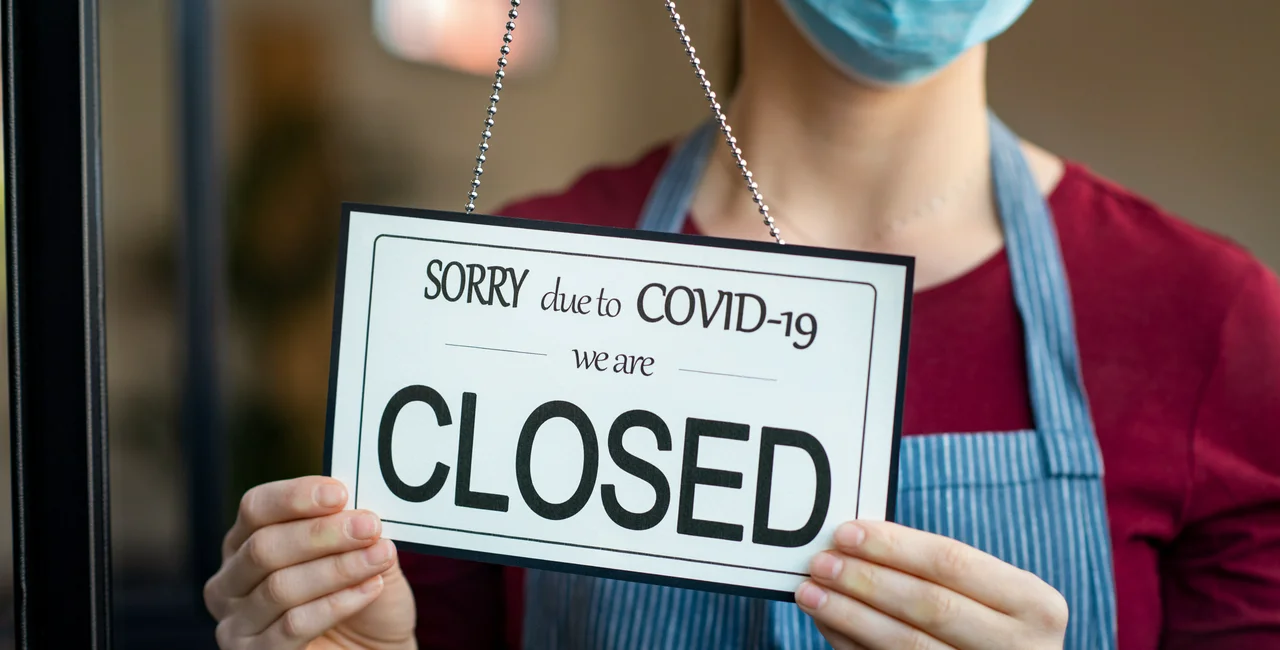The Czech cabinet will have to modify its restrictions on retail stores in accordance with a decision of the Constitutional Court, which took issue with the cabinet's Jan. 28 decision to close stores, with some exceptions Deputy Prime Minister Jan Hamáček said.
Both Hamáček and Deputy Prime Minister Karel Havlíček are trying to find out the ruling’s impact, and what the next steps will be. “We will have to modify the measures in accordance with the judicial decision," Hamáček said.
The court has canceled a part of the government decision that restricted retails stores and services. It said the cabinet had not sufficiently explained why it had some stores closed and exempted others from the closure. The court said it has scrapped the restriction challenged by a group of senators, but stores would not reopen immediately as the cabinet's similar restrictive measure from Feb. 14 remains in effect.
Havlíček told tabloid Blesk that the restrictions on retailers was based on advice from epidemiologists. "It corresponds to the restrictions as applies practically all over Europe," he said.
"In the autumn, we applied the 'Austrian path' with hypermarkets being able to offer the full diversity of goods," he said.
In order to prevent discrimination against small stores, which had to remain closed, the state later switched to the Belgian model, which has since Dec. 27 banned hypermarkets from selling the same goods that the closed small stores have, Havlíček said.
"The Belgian model is more fair towards entrepreneurs and less comfortable toward customers. All exemptions have always been explained to the public. Where a bigger problem arose, for example with the accessibility of children's clothes and shoes, we have changed it [by reopening the stores]," Havlíček said.
Earlier today, the Czech Constitutional Court granted the request of of 63 senators and canceled some anti-epidemic restrictions concerning retail stores as a violation of the basic rights of the shopkeepers, the court wrote on its website.
PARTNER ARTICLE
The court found issues with the selection of shops that were allowed to remain open amid the nationwide closure of shops. While brick-and-mortar shoe and clothing stores had to be closed, florist's shops, hardware, and ammunition stores were allowed to run.
The court added that some exceptions require a convincing explanation to show it is not inadmissible arbitrariness on the part of the government.
“This justification is not only a necessary basis for the review carried out by the Constitutional Court, but also for social acceptance and thus also the legitimacy of crisis measures,” Číhalíková Sedláčková said.
The senators in their petition claimed that the store closures inadequately and irrationally interfere with the fundamental right to conduct business according to the Charter of Fundamental Rights and Freedoms of the Czech Republic. The petition objected to the uneven attitude to entrepreneurs according to the products they sell.
When introducing the restrictions, the government did not explain why the closure concerns some businesses while others enjoy an exception, the senators said.
“The Constitutional Court emphasizes, first of all, that it does not question the existence of a legitimate aim pursued by the contested measure,” court spokeswoman Miroslava Číhalíková Sedláčková said in a press release.
“However, the question is whether the different treatment of the various groups of entrepreneurs introduced by the contested measure is sufficiently justifiable and proportionate. In particular, whether there are sufficiently strong grounds [to justify] such a difference in treatment, including whether the objective pursued could not be achieved by less invasive means of interfering with the fundamental rights of the persons concerned,” she added.
The court said it was aware of the scale of the issue facing the government. But deciding which groups of the population retain rights and which have then restricted must not be a mere expression of political will in a modern constitutional state, according to the court.
“The government has opted for a blanket ban on all retail sales and the provision of in-premises services, while providing for a large number of exceptions, reminiscent of a ‘telephone directory’ (36 in total). However, the basic deficit of this procedure is the fact that it is not clear from any relevant source on the basis of which the government came to this solution,” Číhalíková Sedláčková said.
“Even practical uncertainty and a lack of perfect information do not mean that the government can do ‘anything’ while relying only on instinct or political compromise. The government's decision must be based on expert recommendations, based on the maximum available knowledge about the disease and its spread,” she said.
Judge rapporteur Vojtěch Šimíček said the court's decision did not say the government cannot close retail stores. However, the state cannot arbitrarily interfere in the rights of an individual. He added this can be done only in well-grounded cases and only to a limited, necessary extent.
"The basic deficit is the circumstance that it is not obvious from any relevant source how the government reached this solution. … The government decision must be grounded by suitable expert recommendation and the knowledge of the disease," Šimíček said.
The senators petitioned the court last November. Their cause related to particular bans that are no longer valid, but have been replaced by new restrictions with a similar effect. The court agreed to a issue a ruling on expired bans if have been embodied into new pieces of legislation.
The Constitutional Court judges received dozens of motions related to the spring and the autumn state of national emergency and governmental anti-epidemic restrictions. None of the complaints were heard. Often the motions were rejected for formal and procedural reasons, or due to the fact the contested measures had expired.












 Reading time: 4 minutes
Reading time: 4 minutes 






























